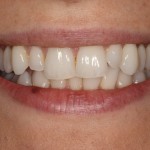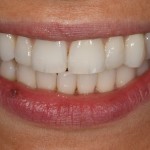Can gum disease affect your general health?
When you think about problems associated with your dental health, you might typically imagine things like tooth decay, gum disease and bad breath. However, there’s evidence that poor dental health could also be related to some long-term conditions that you may not expect.
Research has shown that gum disease is associated with several other diseases. These include:
heart disease and stroke
diabetes
lung conditions
arthritis
complications in pregnancy
But some of the evidence supporting this research is inconclusive and so professional opinions are split. Here, I’ll explain some of the theories behind the headlines and why it’s thought that dental disease could lead to general health problems.
How could your oral health and overall health be linked?
There are a number of theories as to why the health of your mouth and the rest of your body could be related. To understand these, we first need to understand how gum disease develops.
If you don’t brush and clean between your teeth well enough, bacteria can build up to form a layer known as dental plaque. The build-up of this plaque leads to inflammation of the gums surrounding your teeth, causing them to become swollen and sore, and sometimes to bleed. This is known as gum disease.
Heart disease and stroke
Research has shown that your body may respond to the increase in bacteria in your mouth by producing what are known as inflammatory markers. Having bacteria and inflammatory markers in your bloodstream could contribute to the damage of blood vessels, which supply your heart and brain. This might lead to heart disease and stroke.
Some studies also suggest that treating gum disease might reduce the amount of overall inflammation around your body. It’s thought that this might help to reduce, but not prevent, your chance of developing cardiovascular disease. These findings are yet to be confirmed.
Diabetes
It’s well documented that people with diabetes are at a higher risk of developing gum disease. There’s a relationship between blood sugar levels and the severity of gum disease.
There are a few theories as to why this might be, but largely it’s thought to be due to an inflammatory response around the body (similarly to how gum disease affects the cardiovascular system).
Some research suggests that the relationship between diabetes and gum disease is in fact more of a two-way street than we first thought. This means that not only does having diabetes increase your risk of gum disease, but having gum disease increases your risk of developing diabetes too. However, further research is needed before we can fully understand how these two conditions influence each other.
Lung conditions
Your mouth is the main entrance point to your body, and your airways lead from your mouth to your lungs. So if your mouth contains a lot of bacterial plaque, the theory is that you could then breathe this into your lungs. Once inhaled, bacteria could then go on to cause an infection in your lungs or could aggravate an existing condition, such as pneumonia.
Is gum disease a direct cause or is it all a coincidence?
It’s important to understand the difference between two factors here – causality and association.
Causality means that something is a direct cause of another illness, which is what some of the research around this subject would suggest. In this case, that would imply that gum disease directly causes other diseases.
Association means that having gum disease may not directly cause other long-term diseases, but that the two are closely linked for a number of different reasons. For example, they are both influenced by common risk factors, such as smoking or diet. Therefore, this is an important point to consider, and many medical professionals hold this point of view when it comes to health-related issues.
Common risk factors
It’s important to note that gum disease and long-term illnesses have lots of common causes including age, stress levels and ethnicity. So it’s very difficult to know how significant each factor is and more so, which is the main culprit.
The same goes for the type of lifestyle you lead. It’s thought that if you don’t take care of your general health, for example, by eating a healthy diet, not smoking and doing regular exercise, then you may not be looking after your dental health very much either. For this reason, people who may develop heart disease, stroke, diabetes, lung conditions etc, may also be at an increased risk of developing gum disease, because of the lifestyle choices they make.
Although it’s complex, it’s clear that there’s a link between the health of your mouth and the rest of your body. But it’s not yet certain whether this is a direct cause or merely an association. Because of this, more research is needed.
If there’s one key take home message from what we know so far, it’s this: A good teeth cleaning routine, regular exercise, not smoking, a healthy diet and regular visits to your dentist are vital ingredients to achieve optimal dental and general health.
















